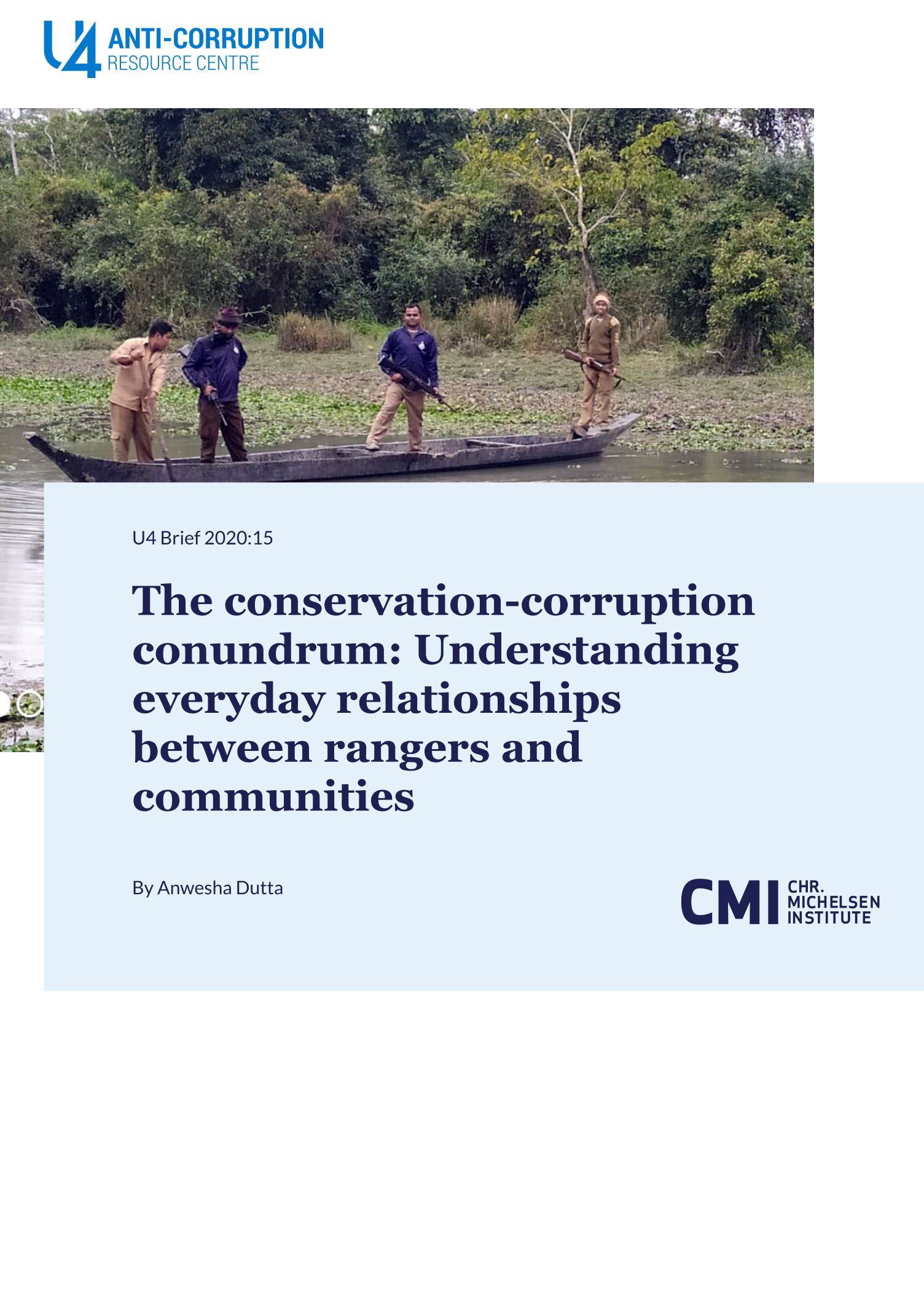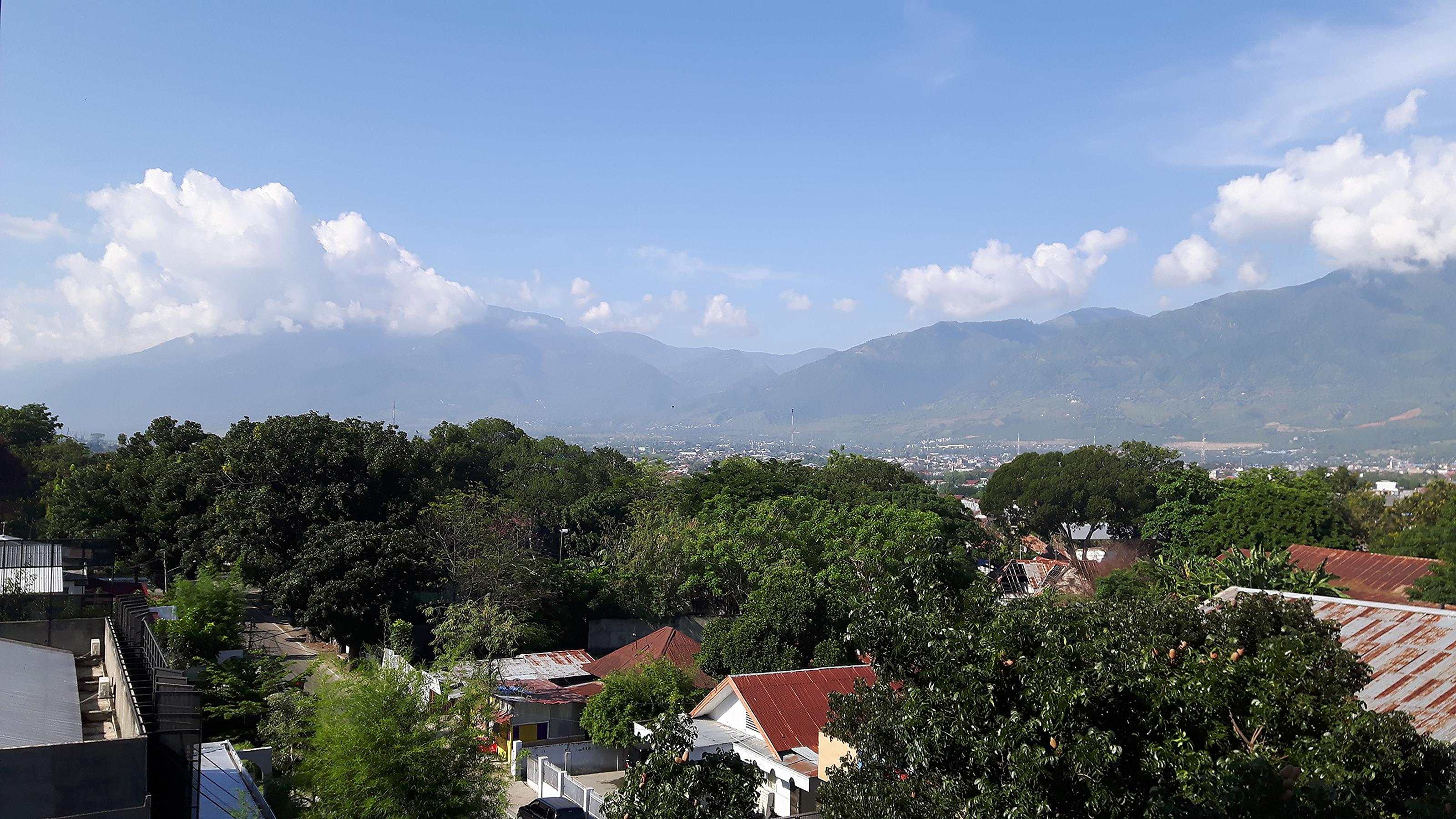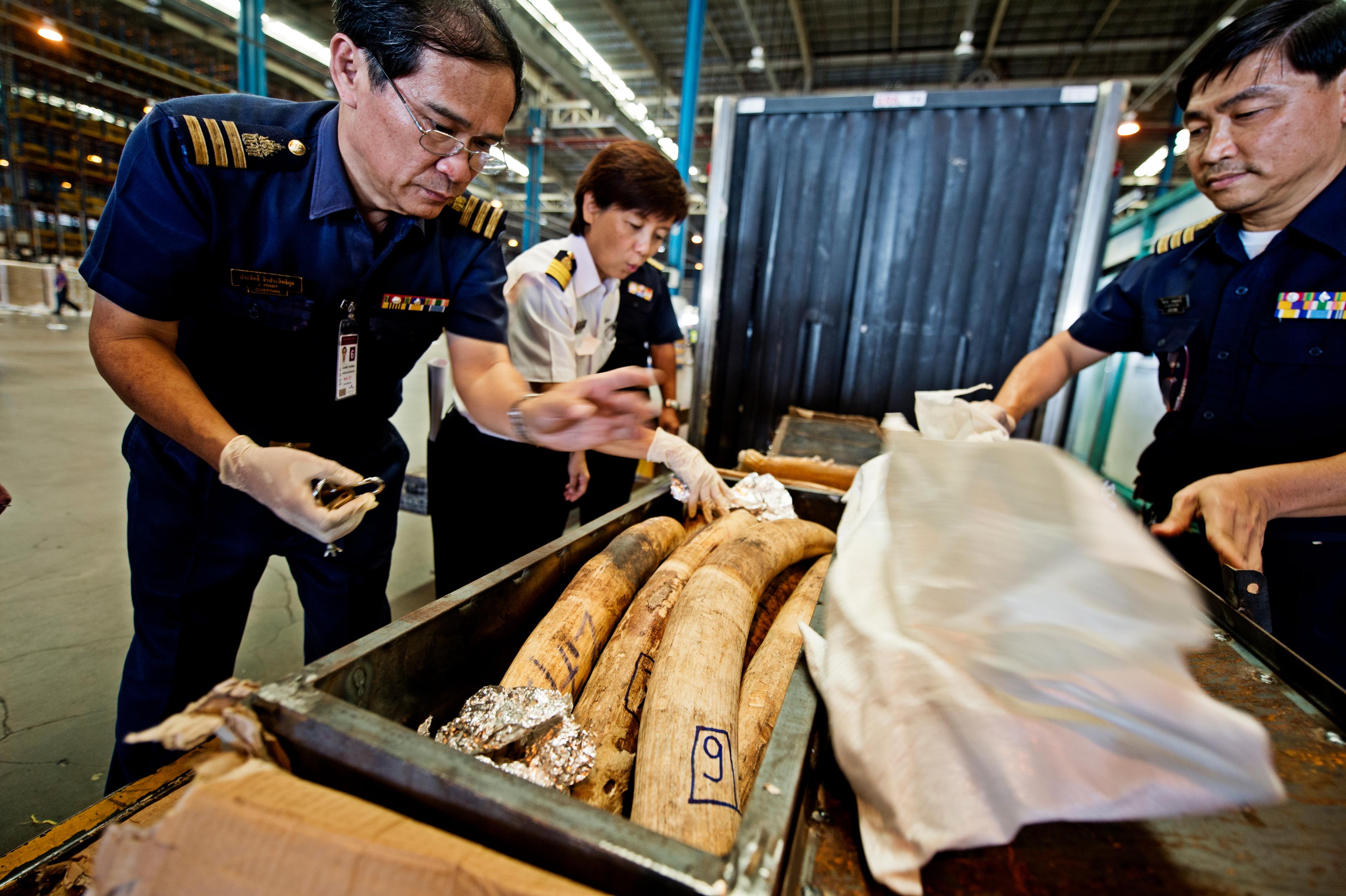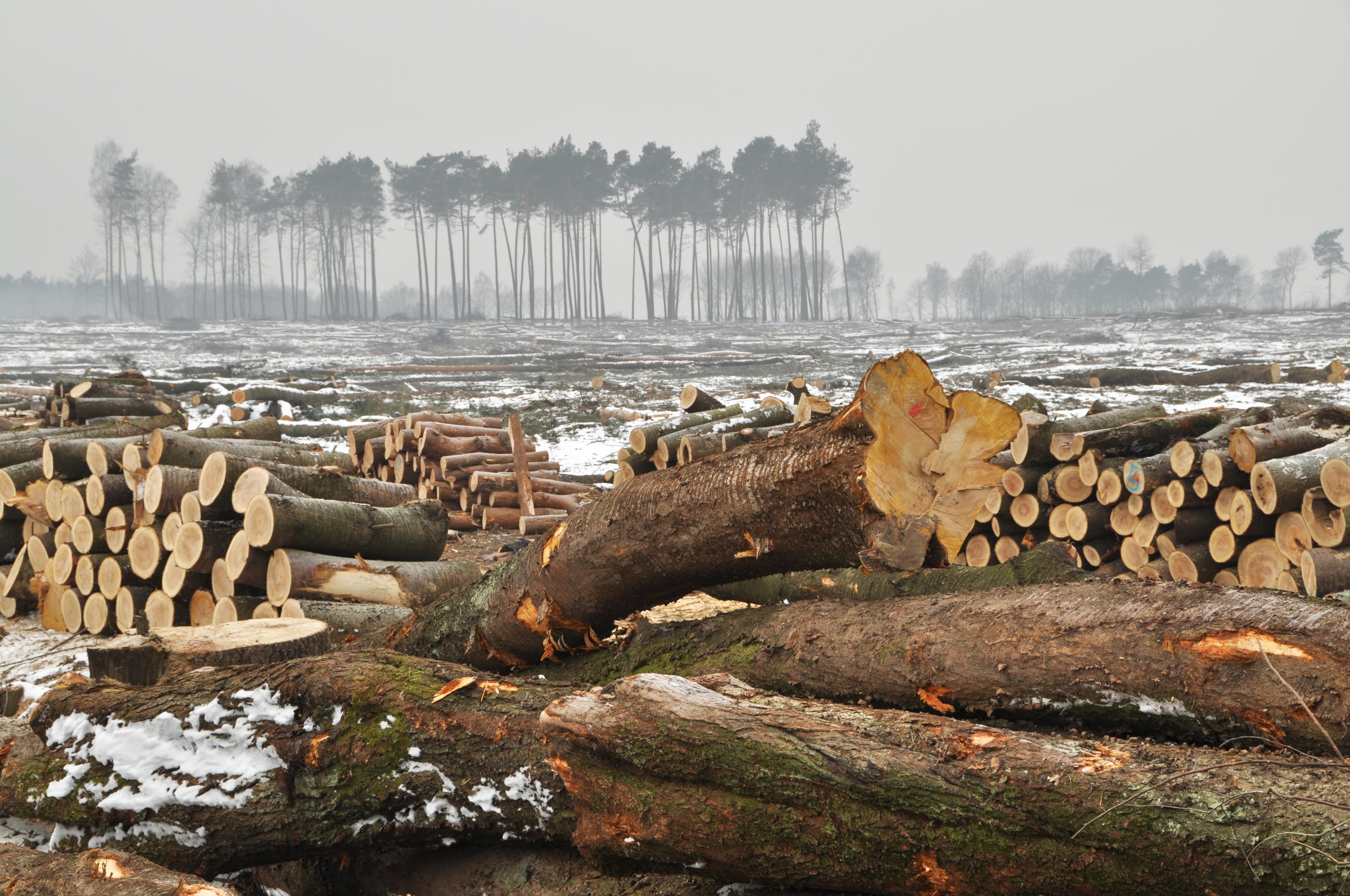Main points
- Forest use, conservation policies, and their implementation are shaped through everyday interactions between rangers and communities, within and at the fringes of forests and national parks.
- Given that rangers have been found to both engage in corruption and to report it as witnesses, it is important to understand rangers’ working conditions and the broader context in which engagement in corruption occurs.
- Conservation and natural resource management policy and practice will be more effective if the crucial roles that rangers play in the interlinkages between local conflict, corruption and natural resource management are more strongly recognised.



